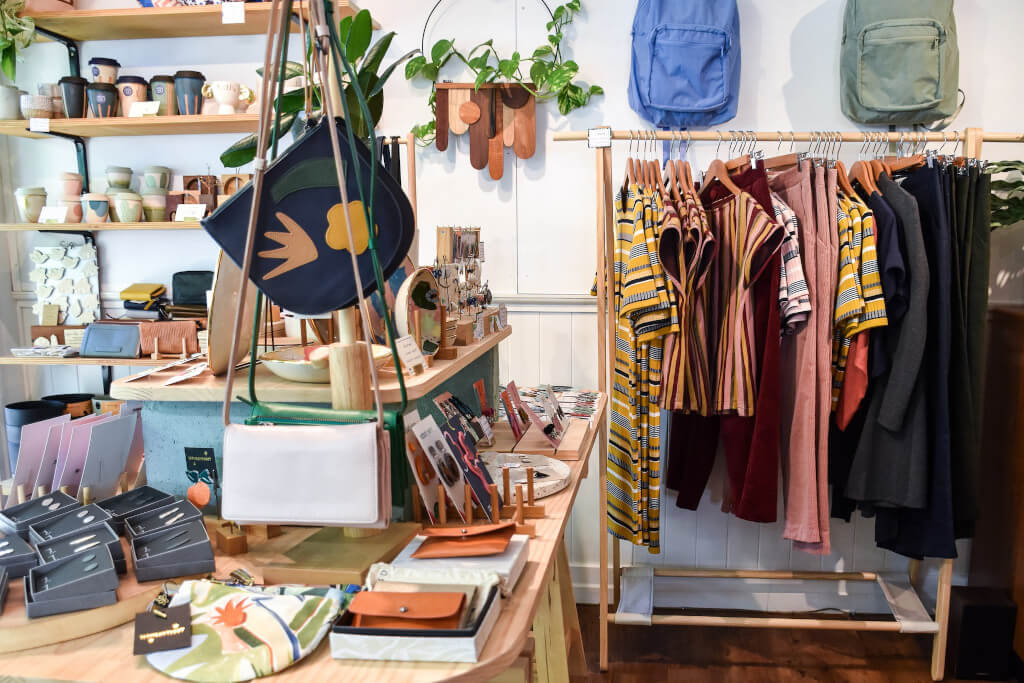Consumer trends are swiftly shifting. With a reported 30% pledging allegiance to eco-friendly, local boutiques for future purchases, it’s clear – the green route is no longer a choice; it’s an imperative for businesses.
As the echoes of COP26 grow louder, and as we march towards COP27, the global crescendo for addressing environmental issues can’t be ignored. Consumers, driven by awareness campaigns from governments and brands, are putting their money where their heart is – and it’s firmly with the planet.
A significant metamorphosis in our daily living is unfolding in the shadow of the climate change challenge. Notwithstanding current economic pressures, ‘conscience shopping’ is emerging as a modern-day mantra. A commendable half of all consumers have cast their lot with sustainable local businesses in the recent past. Confirming this trend, a GoDaddy survey highlighted a whopping 58% of consumers opting for a small-scale business with strong sustainable leanings.
GoDaddy’s ethos centers on championing the success of small enterprises, emphasizing the assimilation of green practices in their blueprint. Commonalities emerge from the mosaic of entrepreneurial experiences, especially when plotting the sustainability roadmap.
The Foremost Challenge?
Knowledge, or rather the lack of it, when devising a sustainable strategy. Close on its heels is the financial tightrope walk. Embracing green suppliers might pinch the pocket. A palpable anxiety among microbusinesses is the potential customer drift if sustainable practices elevate product prices.
Also, several of these businesses find themselves tethered to operational spaces that aren’t exactly ‘green compliant’. This is a stark contrast to solo entrepreneurs operating from eco-friendly home offices. Yet, despite these roadblocks, the allure of green practices is undeniable. The investment today might very well be the beacon attracting the 30% eco-conscious clientele tomorrow.
In this David vs. Goliath corporate scenario, smaller firms often find themselves dwarfed by bigger corporations. But, sustainability could be the slingshot! A substantial 42% of consumers lean towards a small yet sustainably conscious retailer over a behemoth with a not-so-green footprint.
In the CSR (Corporate Social Responsibility) era, where transparency isn’t just appreciated but demanded, microbusinesses stand at the threshold of green integration.
And as GoDaddy champions the small business crusade, evolution is a constant. Our aspirations span the global horizon, aiming to uplift work and life. As the sands of time and demand shift, so does our strategy, evident in our unwavering support for innovative entrepreneurs dancing to the green rhythm.
One such remarkable narrative is of Hannah Mills MBE. After conquering the Olympic waves, she’s now riding the green wave with ‘The Big Plastic Pledge’. Initially envisioned for sports, this low-cost sustainability strategy has now resonated with entrepreneurs. And GoDaddy, in collaboration with Hannah, proudly offers a sustainable toolkit to the UK’s 2 million micro-entrepreneurs, propelling them towards a greener future.
For small enterprises, sustainability isn’t just about eco-friendliness; it’s about ethical operations, risk mitigation, and potentially higher returns. As GoDaddy’s global footprint expands, so does our responsibility. We echo the green dreams of our clients, with an ambitious goal: slashing our greenhouse gas emissions by a minimum of 50% come 2025.
The Advantages of Green Practices for Microbusinesses
Brand Differentiation and Consumer Appeal
In today’s market, where the eco-conscious consumer segment is growing rapidly, adopting sustainable practices can be a distinguishing factor for micro businesses. As seen from the previously mentioned GoDaddy survey, a significant portion of consumers (58%) favor small businesses with strong sustainable credentials. Thus, by embracing green practices, microbusinesses can carve out a unique space for themselves, differentiating from competitors and attracting a loyal customer base that values eco-friendliness.
Operational Cost Savings
Over the long term, sustainable business practices can lead to significant cost savings. For instance, utilizing energy-efficient equipment or reducing waste can decrease monthly utility and operational costs. As a result, the initial investments in sustainable solutions often pay off in the form of reduced expenses in the long run.
Increased Employee Morale and Productivity
Employees today are more environmentally aware and often prefer to work for companies that prioritize sustainability. By adopting green practices, microbusinesses can boost employee morale, attract talent, and potentially see increased productivity, as employees often feel more motivated when they believe they’re working for a purpose beyond just profit.
Challenges of Adopting Sustainable Practices for Microbusinesses
Initial Costs and Investment
One of the most daunting challenges for microbusinesses is the initial cost associated with implementing sustainable practices. Whether it’s investing in energy-efficient infrastructure, sourcing eco-friendly materials, or undergoing certifications, the upfront expenses can be substantial. These costs can be particularly burdensome for microbusinesses with limited capital.
Lack of Knowledge and Expertise
As highlighted in the previous article, many microbusinesses lack the necessary knowledge to adopt sustainable business practices. Without the right guidance or expertise, these businesses can face challenges in identifying the most beneficial sustainable solutions and implementing them effectively.
Potential Price Increases and Customer Pushback
Transitioning to eco-friendly suppliers or materials may sometimes result in increased costs, which could lead to higher prices for the end consumer. There’s a genuine concern among microbusiness owners that raising prices, even if for a noble cause like sustainability, might result in losing customers to less-expensive competitors who haven’t adopted such practices.
Limitations Due to Operational Spaces
Especially for microbusinesses that don’t operate on their premises (like construction companies or handymen mentioned in the earlier article), it might be challenging to implement certain sustainable practices. If they’re dependent on third-party spaces, they may not have the autonomy to make eco-friendly changes to the operational environment.
The Future with Sustainable Choices
A Flourishing Brand Image
As you continue to prioritize eco-friendly practices in your microbusiness, you’re not just adopting a trend; you’re setting the tone for the future. By standing firm on green initiatives, your brand image will evolve into one of trustworthiness and commitment. Consumers, now more than ever, are aligning their purchasing choices with their values. Shortly, businesses that showcase an unwavering dedication to sustainability will find themselves in the good books of consumers, creating an enduring relationship.
A Boost to Local Economies
When microbusinesses like yours choose to integrate sustainable practices, it’s not just the environment that benefits. By sourcing eco-friendly products locally or collaborating with local green initiatives, you’re effectively pouring resources back into the community. Over time, this can lead to an uplifted local economy, fostering a supportive environment where both businesses and the community flourish hand in hand.
Harnessing Innovation and Agility
Embracing green practices often requires innovative solutions, especially for microbusinesses with limited resources. As you and your team continue to seek sustainable options and experiment with green technologies, your business becomes more agile and adaptable. This resilience can be invaluable in the ever-evolving business landscape, positioning your firm as a forward-thinking entity ready to tackle future challenges.
Unlocking New Business Opportunities
The green movement is not just about conserving resources; it’s also a budding ground for new opportunities. By aligning your microbusiness with sustainability, doors to collaborations with other eco-friendly businesses might open up. Whether it’s partnerships, joint ventures, or even just shared knowledge platforms, the emphasis on sustainability can pave the way for new business horizons.
Building a Legacy of Responsibility
It’s essential to understand the long-term impact of your choices. By adopting green practices today, you’re laying the foundation for a legacy. Future generations will inherit a world shaped by today’s decisions. Through your commitment, you’re ensuring that your business plays a role in creating a sustainable, responsible, and thriving world for them. And isn’t that a legacy every business owner dreams of?




